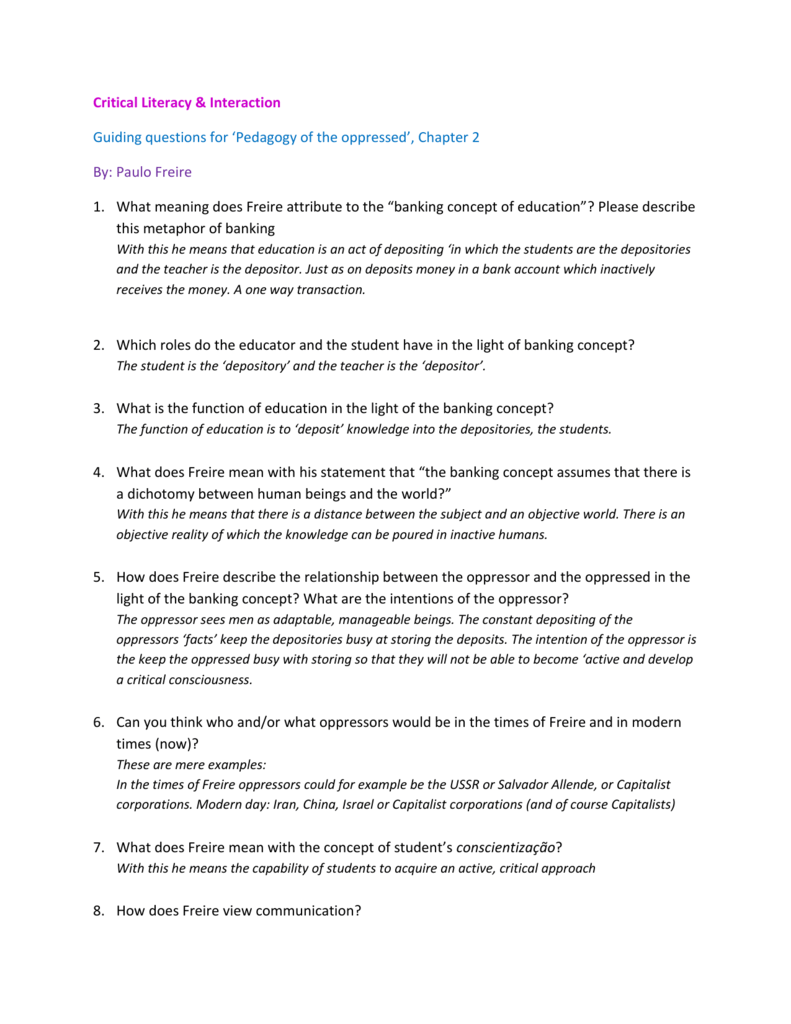

The text began illustrating the why there is even a need for a pedagogy of the oppressed. Many ideas were presented in Pedagogy of the Oppressed. His ideas on class and the factors of oppression altered his perspective, which led him to view situations and write more openly and more universally. “It is the realization of such class borders that led, invariably, to Freire’s radical rejection of a class-based society” (Macedo, 2000, p. Freire’s own experiences of poverty led him to have differing opinions regarding class.

He was even jailed for teaching Brazilian peasants how to read. For most of his adult life, Freire was dedicated to the well-being of the impoverished. His ability to relate to the oppressed and to have oppressed citizens find understanding in his writing is mutually beneficial for both parties. Freire states that the book’s content is a result of observations made during his six years of political exile.

Because of his upbringing and beliefs, Paulo Freire’s experiences contributed in the writing of Pedagogy of the Oppressed.


 0 kommentar(er)
0 kommentar(er)
